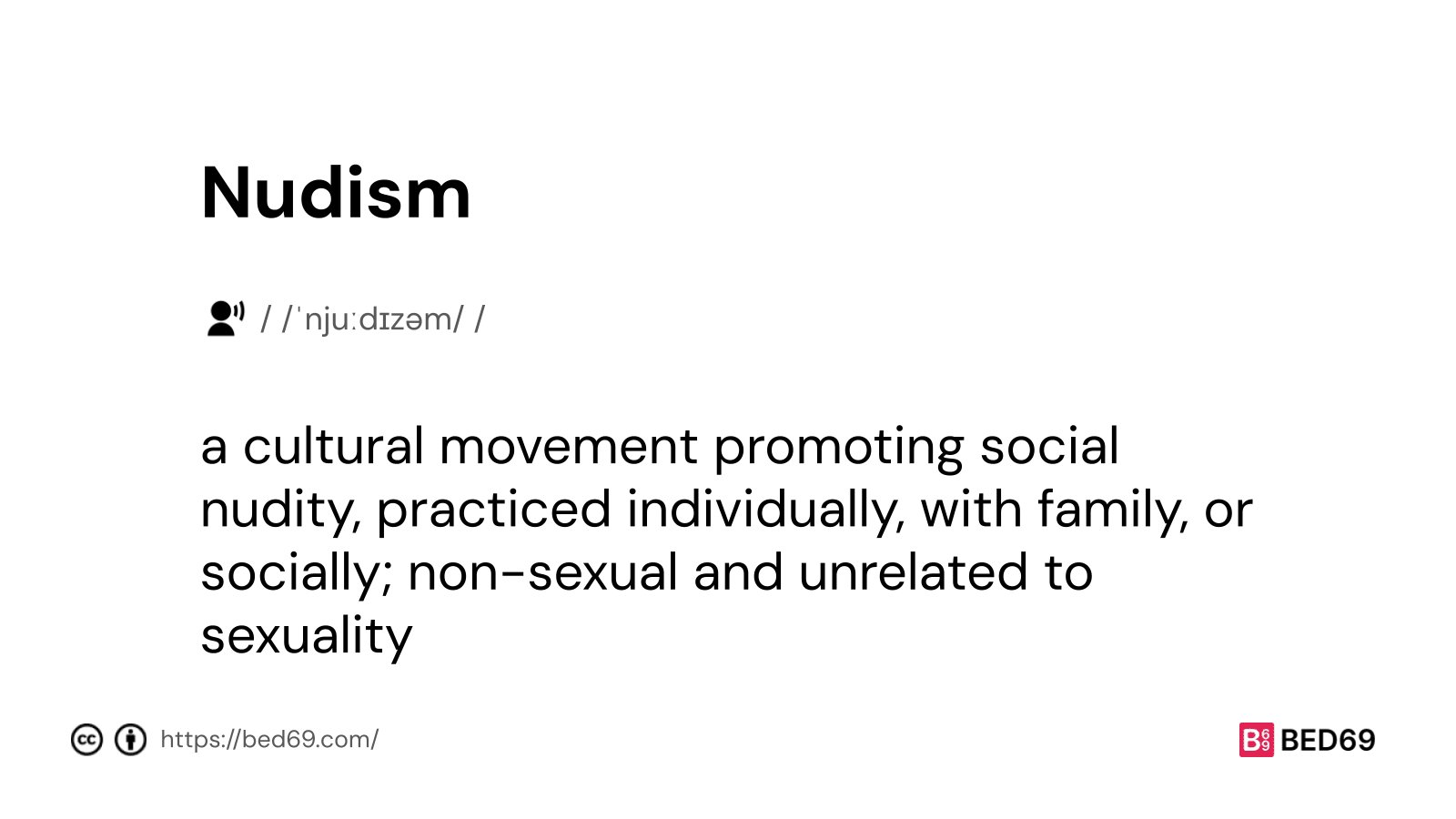What is Nudism?
Nudism, also known as naturism, is a cultural movement promoting social nudity. It can be practiced individually, with family, or socially. Participants can explore clothes-free beaches and events without the need for group membership. Nudism is non-sexual and unrelated to sexuality.
Nudism pronunciation: / ˈnjuːdɪzəm /

What motivates people to embrace nudism
People embrace nudism for various reasons, such as feeling a sense of freedom and connection with nature. For some, it’s about shedding societal norms and embracing body positivity. Nudism can foster a sense of equality and acceptance, as clothing distinctions vanish, promoting a more authentic form of human interaction.
Participants often find nudism to be a liberating experience, allowing them to feel more comfortable in their skin and appreciate themselves and others without judgment. It’s a way to break free from the constraints of clothing and societal expectations, fostering a deeper sense of self-acceptance and harmony with nature.
The benefits of practicing nudism for mental well-being
Engaging in nudism can have positive effects on mental well-being. Shedding clothing barriers can boost body acceptance and self-confidence. Being nude in a social setting fosters a sense of equality and unity among participants. It encourages individuals to embrace their bodies and appreciate diverse forms of beauty.
Nudism promotes a deeper connection with nature and a feeling of liberation from societal norms, leading to reduced stress and increased relaxation. Embracing social nudity can help individuals feel more comfortable in their skin, promoting a healthier self-image and a more positive outlook on life.
Explore other interesting terms:
